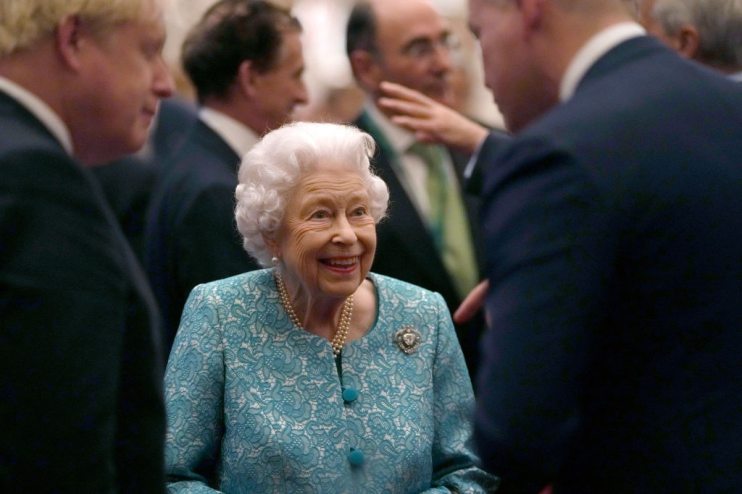If the monarchy wants to survive, it must learn from the Queen’s longevity

The Queen’s Platinum Jubilee Weekend has almost arrived. With over 16,000 street parties around the country, beacon lighting, a pageant and concert in central London, it’s set to be a bumper celebration for the whole nation. The journalist and author Walter Bagehot once wrote that “a royal family sweetens politics by the seasonable addition of nice and pretty events”; the coming celebrations certainly fall into that category.
The Diamond Jubilee in 2012 had a precedent in the form of Queen Victoria. This Platinum Jubilee is a unique moment and a testament to the Queen’s remarkable longevity. She has reigned for seven years longer than any other British monarch. Already a multiple record breaker for her length of service, in two years, she is due to overtake France’s boy King Louis XIV who reigned for 72 years (1643-1715).
To some, the monarchy may seem old-fashioned but despite so many economic, social and technological changes, it still has an enduring power. It is remarkable how much has changed since the start of the second Elizabethan era in 1952. Britain was emerging from the ravages of the Second World War and there was still rationing on items such as tea, sugar, butter and sweets. At the time, there were no motorways, supermarkets or internet, all things that today we take for granted.
Much of the monarchy’s ongoing appeal is down to the widespread admiration and respect for the 96 year-old Queen. She has played a blinder in fulfilling her constitutional and other obligations with dignity, consistency and humility, through rapidly changing times.
Over the seven decades of her reign, the Queen has given assent to approximately 4,000 Acts of Parliament and attended the State Opening of Parliament in almost every year of her reign. She has also held weekly audiences with her 14 prime ministers from Winston Churchill to Boris Johnson. In total she has fulfilled 21,000 public engagements over 70 years, and understood the importance of contact with the public, appreciating that this leaves people with lifelong memories.
As the Queen of the UK and 14 other countries, including Australia, Canada and New Zealand, she naturally has a global perspective. She has travelled to over 100 countries, on every continent, hosted 112 state visits to the UK and is Head of the 54-nation Commonwealth. She has navigated a broad sweep of different cultural and political challenges, giving her a deep international understanding.
The Queen has been a force for stability, leading the UK through some choppy times, including the Falklands and Iraq Wars; our entry to the European community in 1973 followed by Brexit, as well as the pandemic. She has consoled the country at low points, in the aftermath of national tragedies such as the 7/7 bombings in 2005 and in the annual wartime commemorations. These moments of leadership play a role in fostering national identity and unity at both sombre and celebratory times in our history.
It was the Queen who presented the World Cup to Bobby Moore at Wembley in 1966, congratulated British tennis champions such as Virginia Wade, Andy Murray and Emma Raducanu and opened the London Olympics in 2012, with the famous James Bond stunt.
As well as garlanding famous sporting figures and other household names, she has celebrated the achievements of tens of thousands of people, presiding at the investiture ceremonies when they receive honours. Garden parties may have a light-hearted ring to them but through such events, the Queen has fostered links with a wide array of exceptional people who have carried out voluntary and charity work. All this led one former Palace private secretary to summarise his employer’s role as “the happiness business.”
Other members of the Royal Family have continued in the Queen’s footsteps to work with high-impact charitable campaigns, even as we have questioned the modern monarchy.
The Queen has been a constant in an ever-changing country and world. There have been times of stress and challenge but it is through her steadfast presence that she has kept the monarchy relevant, subtly adapting and moving forward in a way that chimes with public mood. Keeping on the right side of public opinion will continue to be the test in the future. It was her late husband, Prince Philip, who once said: “I think it is a misconception to imagine that the monarchy exists in the interests of the monarch. It doesn’t. It exists in the interests of the people.” The monarchy must continue to heed his words and the Queen’s majestic example.